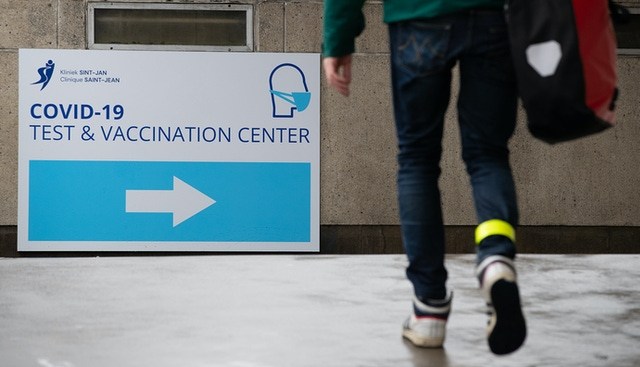Ministers from the Francophone liberal MR and Flemish centrist CD&V parties are calling for an urgent meeting of the Health Committee in Brussels’ Parliament to tackle the slow vaccination rollout in the capital region.
In a joint statement on Sunday, David Liesterh and Bianca Debaets urged the regional government to make additional efforts to roll out vaccinations, noting that, with a vaccination rate of just 58%, the Brussels Region was lagging far behind Flanders (86%) and Wallonia (76%).
"In this context, it is quite incomprehensible that vaccination centres, such as the one in Heysel, are starting to close their doors," they stressed.
The slow pace of vaccination in Brussels "risks undermining the national strategy to end the crisis. In the fight against COVID, every day counts. Brussels has already lost too many," Debaets said.
Related News
- Belgium expected to turn fully red on European travel map
- Some coronavirus measures necessary even in autumn and winter, experts warn
- 70% of entire Flemish population is fully vaccinated
In a post on Twitter, she referred to a recent article from De Tijd which highlighted that Brussels' vaccination coverage rate was among the lowest in Western Europe, alongside those in London and Vienna.
"No city in Western Europe does worse than Brussels. Shameful!" she added in a message on Twitter.
Geen enkele stad in West-Europa doet slechter dan Brussel. Beschamend! Daarom vragen collega @DavidLeisterh en ikzelf volgende week spoedzitting van de Commissie Gezondheid in aanwezigheid van Alain Maron én Elke Van den Brandt. #covid #actienu @MRBruxelles @CDenV_Brussel pic.twitter.com/NJsf3Qe8kc
— Bianca Debaets (@BiancaDebaets) August 15, 2021
The two parliamentarians argued that Brussels Health Minister Alain Maron, who is in charge of the region’s vaccination strategy, had failed to promote vaccinations.
"It’s in fact in the communes with broad ethnic diversity that the vaccination rate is lowest," they said.
"Misinformation about the vaccines is much more prevalent there than in other communes and access to vaccination for people in precarious situations is difficult," they added.
However, Debaets said she was "happy, all the same, that people are finally turning to religious leaders to raise awareness in certain communities, as has been done in Flanders."
Calling for an effective communication campaign that fights disinformation, Liesterh cautioned that "failure in that regard could result in a triple penalty: a degradation of the health of the people of Brussels, a fourth wave of restricted freedoms while the rest of the country remains open, and a new slap in the face for our region’s businesses."
Uphill battle
Despite the ongoing efforts of Brussels' Joint Community Commission (Cocom), which is in charge of the rollout of coronavirus vaccines in the region, the coverage rate remains much lower than in the other regions.
According to Inge Neven, the head of the region’s Health Inspectorate, the reason behind the lower uptake has a lot to do with the region’s character, including multiculturalism, and most of its residents having dual nationality, play a big role in the struggle to get people vaccinated.
Since this week, the around 1,000 Brussels residents who got their shot in another country have now also been registered in the Capital-Region.
This means that around 4-5% of the Brussels population that had been vaccinated abroad without the knowledge of the local authorities could result in the coverage rate being slightly higher than the official figures suggest.

